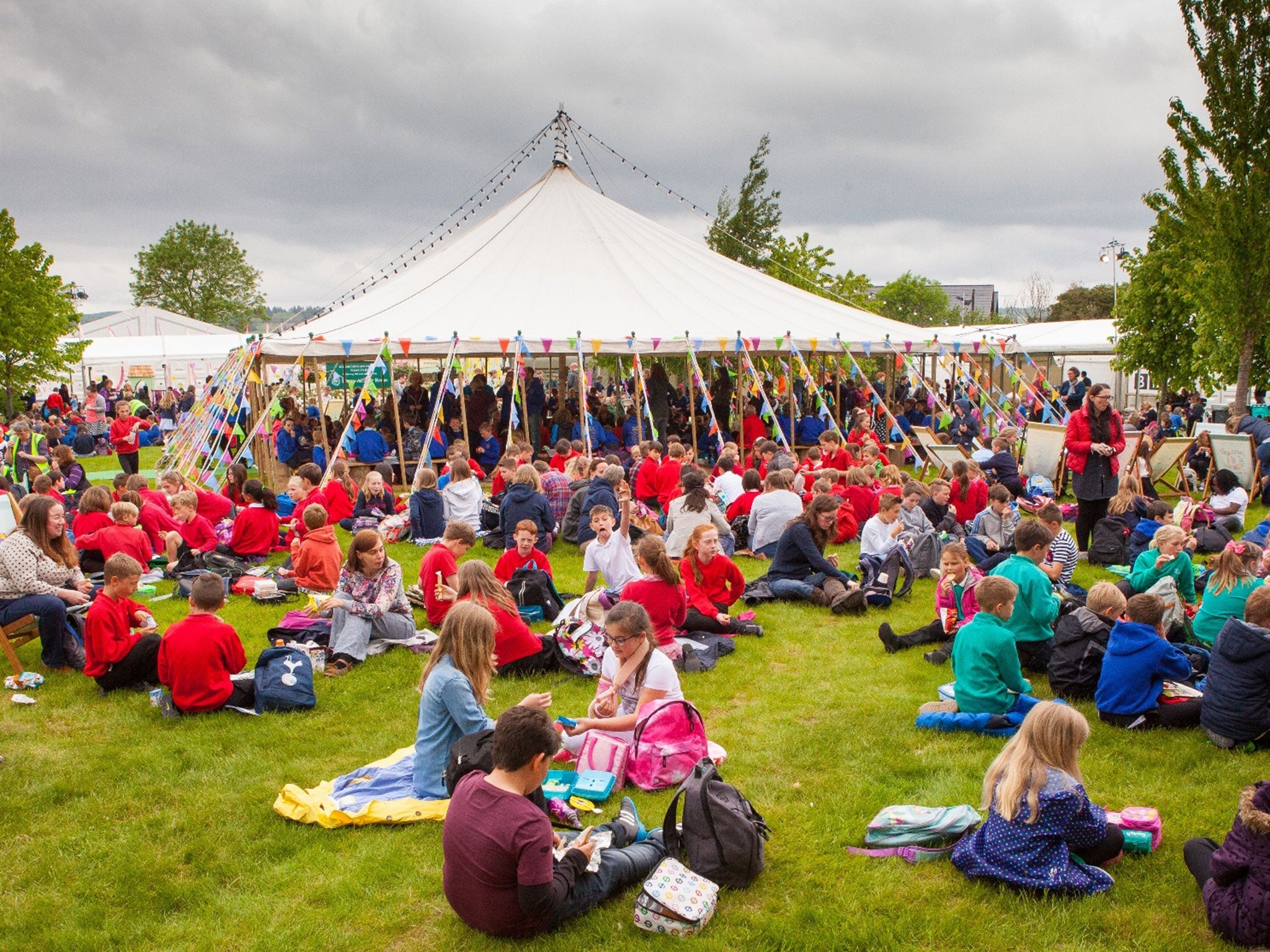The Hay Festival is an embarrassing celebration of elitism. It must open up to new readers
There is rising interest in live literary experiences such as poetry slams, but the most influential literary festival needs to widen its appeal

Today is the first day of the 2016 Hay Festival: the UK’s largest literary festival and a veritable cornucopia of books, bunting, those frightfully jolly Penguin deckchairs. An unapologetic celebration of elitism.
Over the last decade, studies have claimed that literary festivals sideline low-profile authors and neglect minority writers, while continuing to cater to an ‘elite’ group of readers, writers and culture professionals.
The Hay Festival isn’t any more elitist than any other UK literary festival, but it is bigger and it does swallow up most of the year’s column inches devoted to literary events. As a result, wealthy white people hanging out in luxury yurts and splurging on novelty Jane Austen tea-towels is the image that most Brits now associate with literary events. It’s enough to put even the most voracious reader off going to their first book event.
The idea that literature is for a specific subset of people - wealthy, traditionally educated, Radio 4 acolytes - isn’t new. After all, literature has been used as a demarker of social class for centuries, right back to the time when novels were considered trashy and publishers hadn’t yet worked out how to flog them to the intellectually ambitious by seizing on the ego-stroking, oxymoronic moniker, “literary fiction” (as opposed to “popular fiction”).
If Hay’s organisers have already soaked up centuries of stereotyping, is it any surprise that this year’s programme looks like the result of a damson gin soaked brainstorming session between Mrs Tiggy Winkle and Michael Palin’s favourite cardigan? No, because the managers and publicists of events like these give the impression they don't want to turn them into anything other than a Cath Kidston tent-dwellers wet dream.
While the popularity of crossover writers and artists, such as the poet and rapper Kate Tempest, is growing, and there is a rising interest among young people in live literary experiences such as poetry slams, the most influential of these events, it seems to me, apparently sees no need to widen its own appeal and welcome new readers, writers or speakers.
The prevailing of the status quo – among this year's attendees, at least – seems clear from one look at the Hay Festival 2016 programme. It’s not just the surfeit of white faces, shiny-haired blonde women and achingly twee shots of children, bunting and jam jars – it’s the ticket price.
Charging admission makes an event inaccessible to many people on lower incomes, especially families with children. The average entry fee for a Hay Festival event is £7 per person. Plus a £3 booking fee. Plus travel costs. Plus accommodation costs.
Which means that a family of four on the UK average weekly income of £499 are looking at spending up to half of that just so their youngest can hear Julia Donaldson talk about Detective Dog.
Unlike other high-profile cultural events, the Hay Festival doesn’t offer any concession prices on its website. The Proms, by contrast, has discounts for children, OAPs, disabled patrons and families clearly sign-posted both online and at the venue. By not advertising similar discounts, the Hay Festival risks sending out a troubling message to low-income readers: this is not for you.
Some of these discounts are available, but potential festival-goers have to ring the box office and request information, which adds an extra layer of complication and reinforces the idea that the kind of people who visit the Hay Festival won’t really need a discount.
But it’s not just low income audiences who can’t find a way through door who are missing out unless these festivals can attract a wider audience – it’s the traditional ticket holders too, who won’t have a chance to hear from the brightest talent working outside the literary establishment.
It’s not just a damning verdict on literary festivals, but on the way British culture still considers literature an elitist pursuit. No wonder a quarter of British adults admit to rarely reading for pleasure. This could change, but it’s up to those organising festivals like Hay to demonstrate why reading is an enjoyable and relevant activity for everyone. That’s not a message being delivered right now.
Join our commenting forum
Join thought-provoking conversations, follow other Independent readers and see their replies
Comments
Bookmark popover
Removed from bookmarks